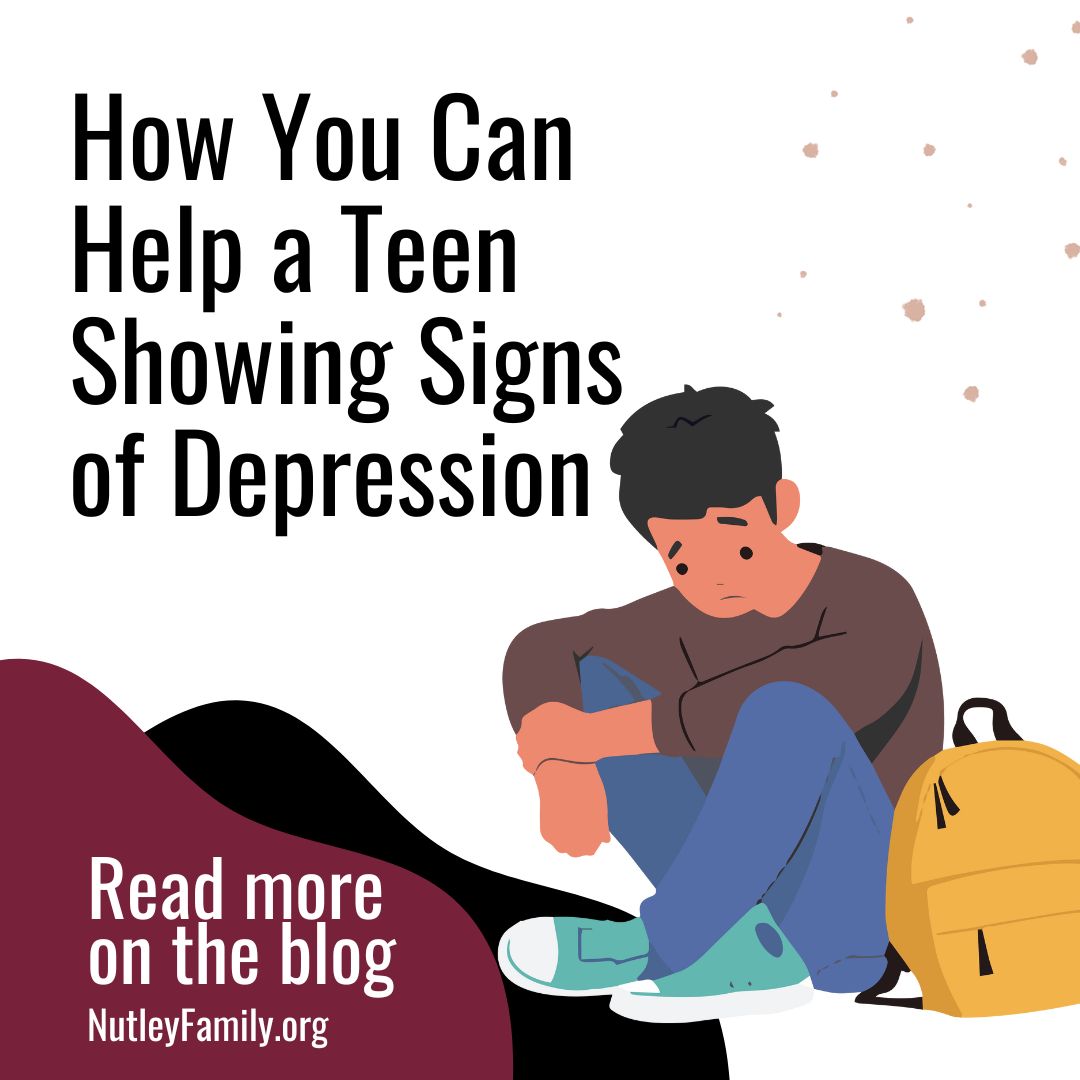-
How You Can Help a Teen Showing Signs of Depression (Part 2)
- Posted on July 27, 2023
- by admin
- in All Articles, Mental Health, NFSB Blog
- Comments Off on How You Can Help a Teen Showing Signs of Depression (Part 2)

In the previous article, we discussed how and why teen depression has become more prevalent in recent years. While the pandemic was certainly a contributing factor, there had been a significant increase in teen depression cases in years prior. Teen depression is often the result of the physical, emotional, social, and academic changes experienced during this period, which can be amplified through social media.
Persistent feelings of sadness are a common sign of teen depression, but change in mood, withdrawal from normal activities and interaction, and even rebellious or irresponsible behavior could also indicate a teen is depressed.
The keys to helping a teen showing signs of depression are to understand what to say, and what not to say, and to seek help as early as possible.
How Should I Approach a Teen Who Seems Depressed?
“You definitely want to refrain from any type of discipline or punishment that seems shaming or critical in nature, especially if you notice sudden changes in mood or behavior,” said Kelly Rivadeneyra, MSW, LCSW at Nutley Family Service Bureau (NFSB). “Saying something like ‘you’re so lazy” or “what’s wrong with you” is likely to cause a teen to shut down. A positive, supportive approach will help you maintain open lines of communication, even when a teen seems withdrawn and isolated.”
Whether you’re a parent or a trusted family member or friend, be a good listener. To an adult, a teen’s problems or concerns could sound relatively insignificant and a solution may seem obvious. However, teens are often depressed because they feel as if they’re not being heard.
“Teenagers always tell me that they wish people would listen more,” Kelly said. “They’re not necessarily looking for advice or feedback. They just want to say what they’re feeling. Giving teens the breathing room to express themselves without judgment goes a long way to understanding and addressing the source of their depression.”
How Can Therapy Help with Teen Depression?
No individual should feel as if helping a teen overcome depression is their sole responsibility. NFSB has been an extremely valuable resource for families, especially when they’re feeling overwhelmed and have been unsuccessful in communicating with their loved one.
“At NFSB, a professional counselor can assess the situation and support both the teen and the family so everyone can process what’s happening,” Kelly said. “If you’re having a hard time even verbalizing or clarifying what you’re feeling, we can help develop those skills. Most importantly, we can explore coping skills to determine what’s effective and not effective for both teens and families.”
Different coping skills work for different people and different situations. Teens can learn coping skills to process depression, while parents and families can learn coping skills to deal with their own anxiety and reinforce what they’ve learned in counseling.
What Are a Few Examples of Coping Skills for Teen Depression?
Most coping skills are intended to help people find clarity about their mental and emotional state, gain deeper awareness of why they feel the way they do, improve cognitive function, and prevent anxiety and stress from getting worse. They can also reduce feelings of low self-esteem, self-blame, and guilt.
For example, journaling is a common coping skill that involves writing down thoughts, feelings, and experiences in a private, judgment-free space. Grounding and relaxation techniques, including breathing exercise, meditation, and mindfulness, can help teens re-establish the sense of balance that’s often disrupted by depression.
Physical exercise, especially outdoors in nature, and creative activities like painting, drawing, and music can have a therapeutic effect and improve physical and mental health.
“It’s important to understand a variety of coping skills because certain skills cannot be used in every environment,” Kelly said. “For example, if you can’t journal, draw, or meditate, you can still practice breathing exercises to relax and relieve stress.”
Depending on the individual, symptoms of depression can be so debilitating that coping skills alone may not be enough to deal with depression. If other interventions have been exhausted, we may introduce medication as an option and discuss how it can help.
The most important thing to remember is that you’re not alone. Help is available for teen depression, right in your own backyard. We’ll always respect your privacy and immediate appointments are available. If you know a teen who you believe may be dealing with depression, call the Mental Health Center at NFSB at 973-667-1884 to schedule an appointment.
If you enjoyed this article please consider sharing it!

















